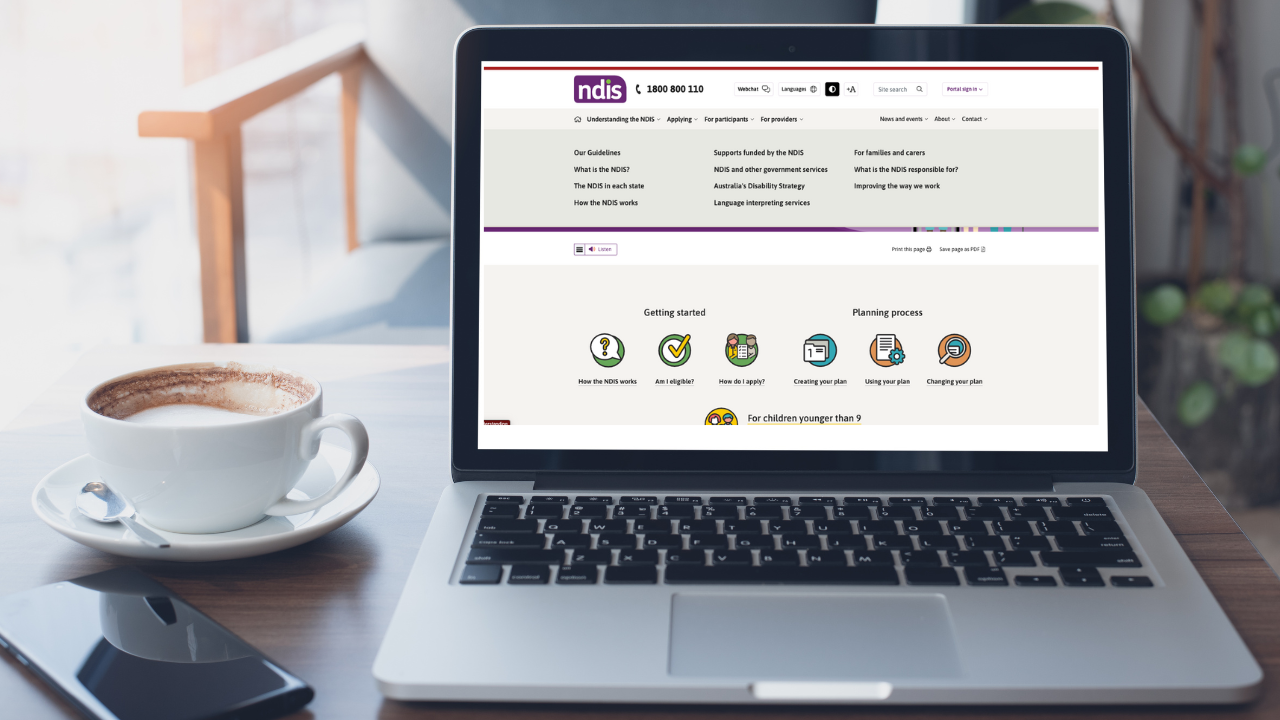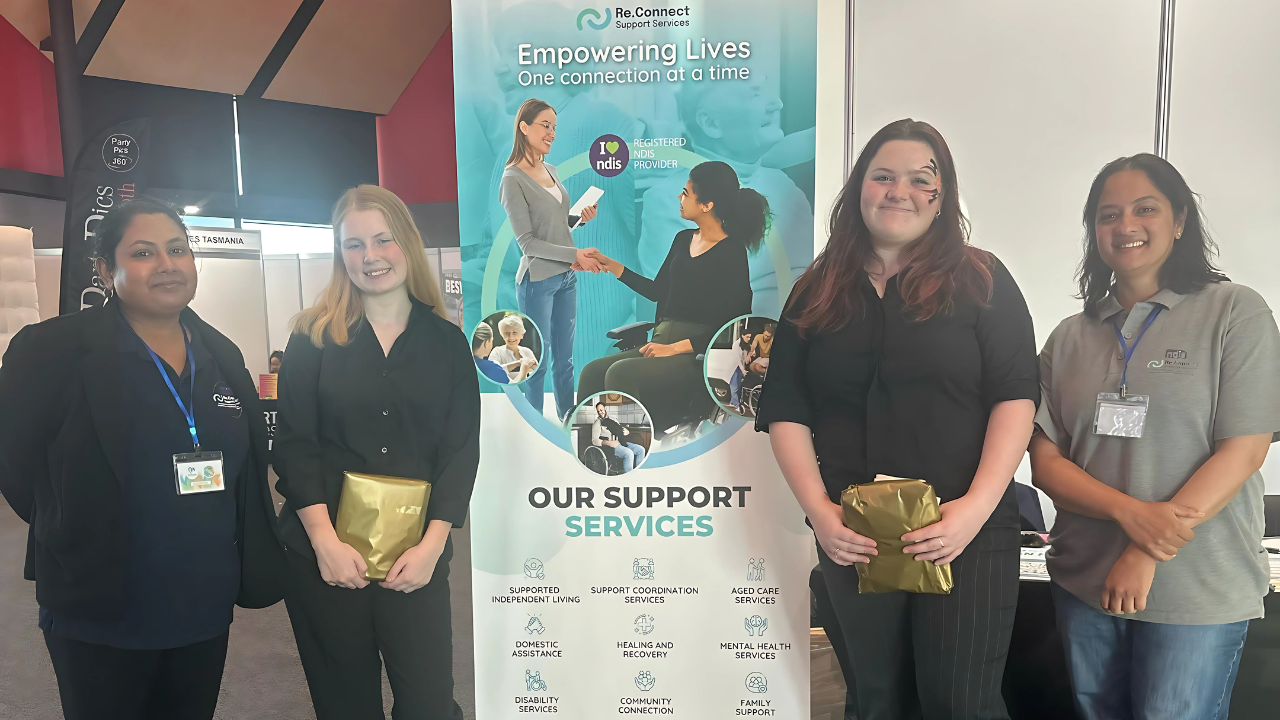Quick Answer
Q: How will the new NDIS rules affect plan management?
A: The new NDIS rules introduced under the National Disability Insurance Scheme are designed to improve safeguards, reduce fraud, and strengthen fairness. Self-managed participants must keep stronger evidence, plan managers face stricter compliance under the payments framework, and NDIA-managed plans will undergo more oversight. These changes to the NDIS ensure funds are used for the right reasons and that all NDIS supports are properly managed.
Introduction: Why the New NDIS Rules Matter
The NDIS is one of the most significant programs in Australia, created by the Australian Government to support the disability community. The program, guided by the NDIS Act, provides essential funding for participants to access services and build independence.
With billions of dollars flowing through the National Disability Insurance Scheme, it is no surprise that reforms were needed. The new rules are part of broader NDIS reforms developed after public consultation with the community, organisations, and state and territory governments. These changes were also informed by NDIS reviews and reports highlighting weaknesses in the system. Each report provides a summary of key changes and explains the reasons behind the reforms, making the information more accessible and understandable for all stakeholders.
The goal of the NDIS rules is simple: keep the scheme sustainable, fair, and able to deliver quality outcomes for every person.
Understanding the NDIS Act

The National Disability Insurance Scheme (NDIS) Act is the cornerstone legislation that shapes how the national disability insurance scheme operates across Australia. This Act sets out the guiding principles, objectives, and responsibilities of the NDIS, ensuring that people with disabilities receive the support they need to live more independently. The NDIS Act also formally establishes the National Disability Insurance Agency (NDIA), which is responsible for administering the scheme and making sure participants get access to reasonable and necessary supports.
Recent changes to the NDIS Act, such as the National Disability Insurance Scheme Amendment (Getting the NDIS Back on Track No. 1) Act 2024, reflect the Australian Government’s commitment to improving the sustainability and quality of the NDIS. These updates are designed to make the scheme more responsive to the needs of participants, strengthen oversight, and ensure that funding is used effectively. By keeping the NDIS Act up to date, the government aims to protect the rights of people with disabilities and ensure the national disability insurance system remains strong for the future.
NDIS Supports and Services
NDIS supports and services are at the heart of helping participants achieve their goals and live as independently as possible. The NDIS provides funding for a wide range of supports, including personal care, therapies, assistive technology, equipment, and home modifications.Participants can choose how their supports are managed, whether through self-management, a plan manager, or NDIA management, giving them flexibility and control over their plan.
The new NDIS supports rules, which came into effect on 3 October 2024, provide clearer guidance on what types of supports can be funded and how participants can use their funding. These rules help participants, families, and providers understand what is considered reasonable and necessary, making it easier to plan and access the right services. Whether you need support coordination, daily living assistance, or specialized therapies, the NDIS supports rules ensure that your plan is tailored to your unique needs and goals.
Developing NDIS Plans
Every NDIS participant has an individualized plan that outlines the supports and services they need to reach their goals. The planning process starts with a conversation between the participant, their family or carers, and an NDIS planner. Together, they identify the participant’s needs, aspirations, and the types of supports that will help them thrive. This collaborative approach ensures that each plan is truly personalized.
The NDIS has introduced new planning methods, such as needs assessments and more flexible budgets, to make the process smoother and more effective. If your circumstances change or you feel your current plan isn’t meeting your needs, you can request a plan review or reassessment at any time. This ensures that your NDIS plan continues to provide the right level of support as your life evolves. The focus is always on making sure participants have access to the funding and services they need to achieve their goals.
What Are the New NDIS Rules?
The new NDIS rules are reforms introduced to improve safeguards, compliance, and NDIS quality. In the context of the NDIS, a rule is a specific legislative or policy directive that governs how the scheme operates, including funding management and participant rights. Each new rule is designed to address specific issues identified in the NDIS review process. They were created to strengthen the process for funding, tighten obligations on providers, and make the whole plan easier to understand.
Main Rules and Priorities
- Align the payments framework so that money is spent fairly
- Clarify the criteria for different supports and how the total amount is decided; the NDIA will decide on eligibility and funding based on these criteria
- Strengthen oversight by the NDIS Safeguards Commission
- Give the Administrative Review Tribunal more power to review decisions
- Inform participants through clearer advice and accessible summaries
Read the NDIS Commission update.
Plan Management Options Under the National Disability Insurance Scheme
When thinking about how the new NDIS rules affect people, it helps to understand how NDIS plans can be managed.
Self-Management
- Participants manage their own budget and spend money directly.
- They can choose from different supports, but must keep evidence.
Plan-Managed
- A plan manager pays invoices and handles the process on behalf of the participant.
- Allows access to both registered and unregistered providers.
NDIA-Managed
- The NDIA directly pays providers, but only from the official lists of registered organisations.
- The most compliance-focused option.
How the New Rules Affect Self-Managed Participants
Self-management gives flexibility, but the new NDIS rules raise the bar.
Under self-management, participants are responsible for ensuring that only eligible supports are paid for using NDIS funds.
New Expectations
- Keep receipts for all payments
- Show how you spend your budget on supports listed in your plan
- Request advice from your local area coordinator or early childhood partner if unsure
- Be ready for audits and assessment of spending
Case Story: Jane, who self-manages, bought assistive technology. Under the new rules, she needed to provide receipts and reports. Because she kept clear evidence, the NDIA confirmed her funding was spent fairly and without issue.
How the New Rules Affect Plan-Managed Participants
The new NDIS rules place new responsibilities on plan managers, requiring them to ensure that only eligible NDIS support is funded and managed in accordance with the legislative framework.
Key Changes
- Must provide monthly reports showing how money is spent
- Must keep summaries of all NDIS supports delivered
- Must follow laws and criteria set under the NDIS Act
- Can be asked by the safeguards commission to show compliance
Case Story: David noticed his plan manager now provides detailed summaries each month. These reports help him feel less worried about misuse or abuse of his plan.
How the New Rules Affect NDIA-Managed Participants
Participants managed directly by the NDIA will also see changes to the NDIS.
What’s Different
- NDIA checks invoices more closely before they pay providers
- Only providers that meet NDIS quality standards can be used
- Some requests may take longer, especially where evidence is required
Case Story: Michael’s therapy invoice was delayed because the NDIA needed extra documents. While it slowed the process, it reassured him that his plan was safe from exploitation.
Support Coordination and Advocacy
Support coordination is a vital part of the NDIS, helping participants navigate the scheme and connect with the right supports and services. A support coordinator works alongside you to understand your plan, identify your needs, and link you with providers who can deliver the supports outlined in your plan. This guidance is especially helpful for participants who are new to the NDIS or have complex needs.
Advocacy is equally important, ensuring that every participant has a voice and can stand up for their rights. There are dedicated advocacy organizations, such as the Disability Advocacy Network Australia, that offer independent advice and support.
Participants can also turn to their local area coordinator or plan manager for advocacy services. These resources empower people with disabilities to make informed choices, resolve issues, and get the most out of their NDIS plan.
NDIS Review and Appeals Process
The NDIS review and appeals process is designed to give participants a fair and transparent way to challenge decisions made by the NDIA. If you’re not satisfied with a decision about your plan, supports, or funding, you can request a review. This review is conducted by an independent reviewer who will reassess your situation and the information provided.
If you’re still unhappy with the outcome, you have the right to appeal to the Administrative Review Tribunal (ART), an independent body that ensures decisions are made fairly and in line with the law. The NDIS has introduced new rules and a payments framework to make the review and appeals process clearer and more accessible, including better information about how to manage debts and what to expect during the process.
Throughout, participants can access support and advocacy services to help them navigate each step and ensure their rights are protected. This commitment to fairness and transparency helps build trust in the NDIS and ensures every participant has access to the supports they need.
The Role of the Fraud Fusion Taskforce
The Fraud Fusion Taskforce is a central part of the new NDIS rules. It was created by the Australian Government with the help of territory governments and other entities to detect fraud and take action.
The taskforce also collaborates with advocacy groups to gather feedback and improve fraud detection strategies.
- It uses data analysis to stop suspicious payments
- Works with the safeguards commission and law enforcement
- Protects the community by removing dishonest organisations
Safeguards and Compliance Under the New Rules
The NDIS reforms are designed to keep the scheme fair.
- NDIS participants gain stronger protections against abuse
- Providers must follow stricter rules under the NDIS Act
- The community can be confident that the system is sustainable
Other changes to compliance and safeguards are expected to happen in future updates to the NDIS rules.
Common Questions About the New NDIS Rules
Will I lose flexibility?
No. Core supports remain flexible. The new rules simply require clearer evidence to show how funding is used.
How do these rules prevent fraud?
By requiring more reports, closer assessment of invoices, and stronger oversight by the safeguards commission.
Do providers face new requirements?
Yes. NDIS providers must prove services were delivered, follow the NDIS Code, and meet NDIS quality standards.
What if I cannot provide receipts?
The NDIA may delay or reject payments until evidence is provided. This ensures funding lasts and prevents debt.
Tips for Navigating All the Changes
- Track spending weekly
- Always keep digital and paper copies of invoices
- Use the contact page on NDIS.gov.au for advice
- Ask your local area coordinator or early childhood partner for guidance
- Provide feedback in future consultations to help improve the development of the program
- Stay informed through NDIS reviews and government reports
- Regularly check for new lists of eligible supports published by the NDIS, as these updates can affect which services are funded.
For more essential tips for managing your NDIS funding effectively, visit this resource.
Long-Term Impact of the New NDIS Rules
Over time, these NDIS reforms will create a stronger, more sustainable program.
- Participants will feel safer and more informed
- Organisations that misuse funding will be replaced by those that follow fair rules
- The community will trust that the national disability insurance system is built to last
Conclusion: Protecting the Future of the NDIS
The new NDIS rules are not just paperwork. They represent an effort by the Australian Government, the safeguards commission, and state and territory governments to protect participants and make sure the National Disability Insurance Scheme remains effective.
For self-managed participants, the process means keeping more records. For plan-managed participants, it means clearer summaries and transparency. For NDIA-managed participants, it means more oversight but stronger safeguards.
At Re.Connect Support Services, we inform participants about their obligations and help them make confident decisions. By engaging with all the changes, understanding the main rules, and seeking proper advice, the disability community can continue to access the supports it deserves.




